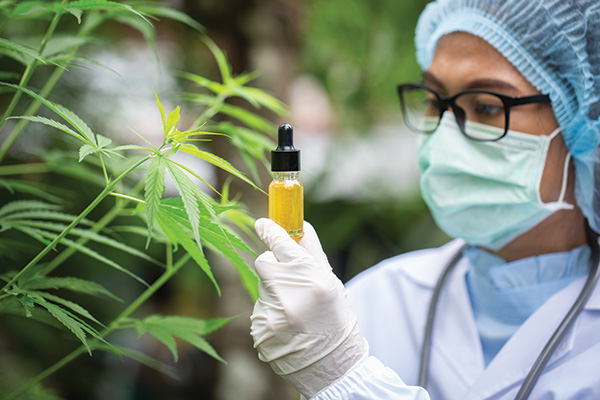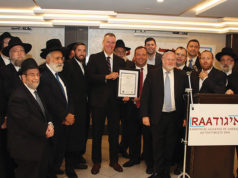
For the past two years, many states have proposed new legislation and programs which would allow businesses and individuals alike to take advantage of the booming industry known as industrial hemp. Cannabidiol, better known as CBD, is a plant-based component found in cannabis that is non-intoxicating and may have several medical or therapeutic benefits for anxiety, pain, nausea, muscle spasms and seizures. Due to its extremely low levels of THC, hemp is not used to produce psychoactive effects. Rather, it is generally used to produce fibers, oils and seeds. Hemp fibers have been used in manufacturing clothing, rope and construction materials, while hemp seeds and oil can be found in cooking oils, cosmetics and delicious snacks.
The production and sale of hemp and hemp-based CBD products is a multi-million dollar industry that is sweeping across the country and is showing no signs of slowing down. While the federal government has put into place certain restrictions surrounding the use of hemp-based products, each state has been given the authority to regulate the cultivation and production of hemp and hemp-based products within their own borders. For example, New Jersey allows hemp-derived CBD to be combined with food and beverages. On the other hand, it is illegal in New York to infuse food or drink with hemp-derived CBD.
Following is important information for anyone interested in participating in this economic opportunity.
In 2014, the Federal Government passed the 2014 Farm Bill distinguishing hemp from cannabis. The 2014 Farm Bill distinguished hemp as having no more than a concentration of 0.3% Tetrahydrocannibinol (THC) by dry weight. The law stated that hemp could only be cultivated by state departments for research purposes.
Thanks to a recent law passed in 2018, known as the 2018 Farm Bill, hemp, hemp derivatives, extract, and hemp-derived CBD were removed from the controlled substances list of the Controlled Substances Act. As a result, hemp grown within either a state or federal program is now an agricultural commodity rather than a research project.
The US Food and Drug Administration regulates hemp products and is still working to develop appropriate production standards, testing and labeling. The US Department of Agriculture (USDA) has adopted federal regulations and established a national licensing system. Every state has the opportunity to submit its own USDA-approved plan to implement its own licensing and regulatory system.
New Jersey is one of only seventeen states with an approved plan for hemp cultivation and processing. It is now legal within the borders of New Jersey to grow, sell and purchase products infused with hemp-derived CBD oil, as long as the producers of the industrial hemp are licensed and conform with state and federal laws. Retail sales of hemp-based products, including CBD, may be conducted within NJ when the products and hemp used in those products were processed and grown legally in another state with similar requirements for processing hemp products. Sales of hemp products transported across state lines and exported to foreign countries must comply with federal law and the laws of the respective foreign countries.
The law in New Jersey allows hemp-based CBD oil to be added to food, drink and cosmetic products. When selling hemp-based CBD, New Jersey requires labels that show the amount of oils or extract, the percentage of THC and/or CBD extract contained in the hemp product, and all labels must distinguish between hemp extract, CBD, or hemp oil. In addition, the FDA has warned many companies about the language used in advertising and labeling certain CBD products.
In order to grow hemp in the State of New Jersey, you must first apply for a license. There are three types of licenses which require separate applications and annual fees: grower, handler, and processor.
A Grower License enables one to, you guessed it, obtain and grow/cultivate, process, or handle hemp seeds. The application process requires a small initial fee and that the applicant provide detailed information, including the exact GPS location where the hemp will be grown, the applicant’s experience in farming, all individuals who will primarily be responsible for growing or handling the hemp, and the reason for seeking a license.

A Handler License allows you to store a hemp plant on premises owned, operated, or controlled by a hemp producer. For example, handlers include laboratories, traders, seed cleaners, and brokers. This does not include possession or storage of finished hemp products.
Processors obtain raw hemp materials and turn them into finished products. There are two types of Processor Licenses. The first license allows you to process hemp materials for grains and fibers. The second type of Processor License allows you to process hemp materials for floral/hemp oil/CBD extracts. *Licensed growers do not require a separate Processor License.
It is important to note that licensees and their business participants are subject to annual background checks, inspections by the NJDA, and must submit planting reports for pre-planting, harvesting, disposal, and annual production.
New York
New York laws regarding hemp regulation have always been murky. Fortunately, a new law was passed in March 2020 splitting hemp licenses into “industrial hemp” and “hemp extract.” Industrial hemp is a product grown for industrial fiber or grain purposes. Hemp extract is a product made or derived from industrial hemp intended for human or animal use or consumption. There will be three types of hemp extract licenses which must be obtained through the New York Department of Agriculture and Markets: CBD Grower, CBD Manufacturer (e.g. Manufacturing and selling CBD products other than oils), and CBD Extractor (e.g. extracting and manufacturing CBD oil).
The new law in New York looks to provide the framework for:
- Renewable licensing required for those looking to grow, manufacture or process hemp and hemp extract products.
- Permit requirements for wholesalers, retailers and manufacturers selling cannabis products derived from hemp extracts.
- Packaging and labeling requirements.
- Laboratory testing oversight by approved labs.
The USDA allows states to establish hemp pilot programs operating under the 2014 Farm Bill. The 2014 Farm Bill allowing states to establish individual licensing programs will expire on October 31, 2020. Because New York is one of the very few states that has not submitted a state-wide plan to the USDA to regulate hemp production, if you want to start growing hemp, you will need to apply to the state’s Industrial Hemp Agricultural Research Pilot Program.
The laws surrounding growing, manufacturing and processing of hemp and hemp-derived CBD are evolving every day. Whether you want to grow industrial hemp, are curious about CBD processing and retail, or want to learn more about the rapidly expanding non-THC cannabinoid industry, The Law Office of Michael Botton, LLC is here to offer insight, guidance and legal services.
Applying for and obtaining a license in New Jersey and New York to grow, handle, or process hemp and hemp-based products can be complicated.
Many businesses apply, yet few are ultimately accepted. If you or someone else would like to get involved in the industrial hemp industry, call the attorney at The Law Office of Michael Botton, LLC for a consultation, (732) 894-3686 or email michaelbottonesq@gmail.com.



